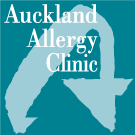
HOME
WHAT?S NEW
ABOUT THE CLINIC
DOCTORS PROFILE
ALLERGY LIBRARY
ALLERGY DICTIONARY
MAKE AN APPOINTMENT
QUESTIONNAIRE
RELATED LINKS
GIVE US FEEDBACK
CONTACT THE CLINIC



|
 HOME WHAT?S NEW ABOUT THE CLINIC DOCTORS PROFILE ALLERGY LIBRARY ALLERGY DICTIONARY MAKE AN APPOINTMENT QUESTIONNAIRE RELATED LINKS GIVE US FEEDBACK CONTACT THE CLINIC    |
|